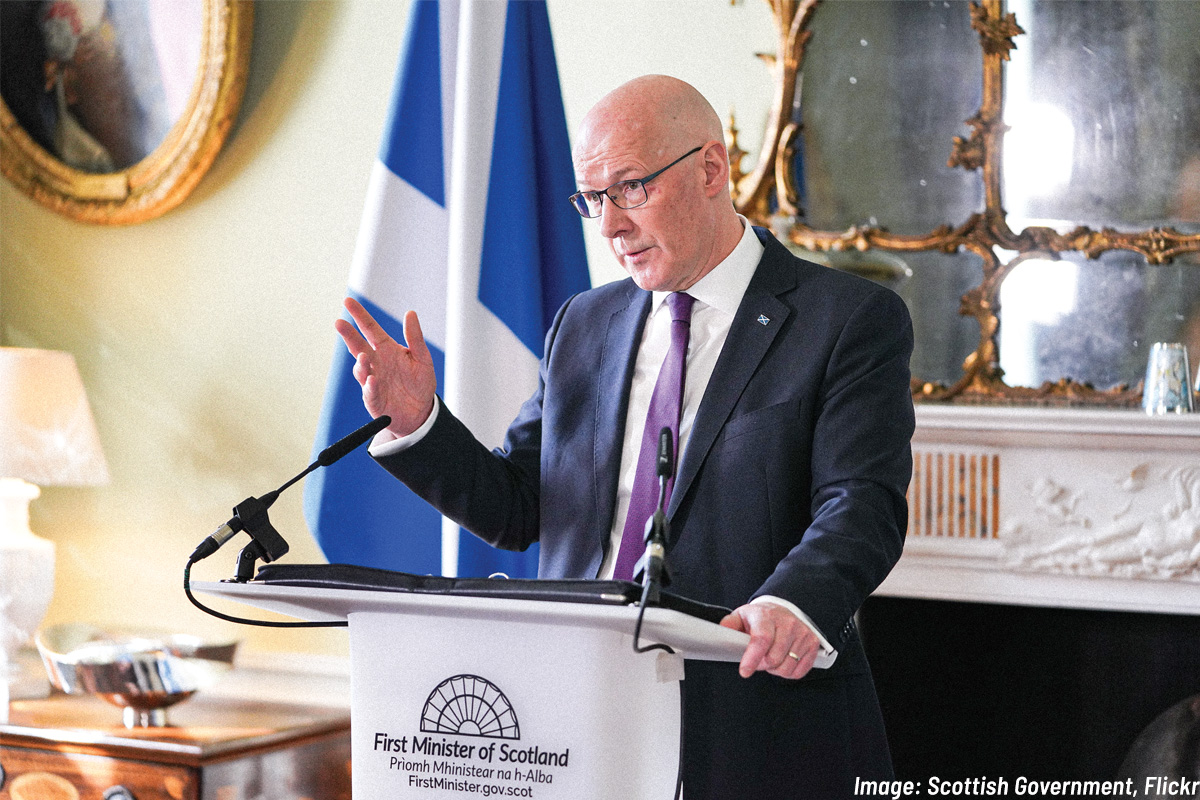The campaigning around the referendum on Scottish independence has now entered the final period with the vote only a few months away. Paul Cummings of the Edinburgh Marxists reports on the latest developments in what is turning out to be a tight contest.
The campaigning around the referendum on Scottish independence has now entered the final period with the vote only a few months away. Paul Cummings of the Edinburgh Marxists reports on the latest developments in what is turning out to be a tight contest.
The momentum is certainly with the Yes campaign. If we are reading the signs correctly the chances of a Yes vote appear to be increasing and closing in on potential victory. The most significant contributor to this process has likely been the lack of a clear alternative from the Labour Party combined with its suicidal involvement in the hopeless Better Together campaign.
The Better Together campaign cannot be criticised enough; it has been an abomination from the word go, and has provided the Yes campaign with limitless ammunition to turn the publics anger against the UK establishment, into potential support for a Yes vote. From dirty smears, to thinly veiled threats they have pursued the worst type of Tory style campaigning. Labour’s involvement has completely neutralised the chances for the party to provide a mass left wing alternative to separatism.
Labour panic
At a recent CLP meeting in the centre of Edinburgh the members were almost in a panic; many argued that they should have never joined with the Tories and the regret was unanimous.
When I suggested that the party break with Better Together and form a campaign based on working class solidarity that led the opposition to the Tory government and Capitalist austerity, the members were deflated and resigned saying that it was “too late”.
Tellingly the Better Together campaign has been relying on Labour members to do the grassroots campaigning, and have struggled to find willing participants. The role of Edinburgh Better Together campaign co-ordinator has remained vacant despite continuous pleas in branches, reflecting the demoralisation in the party.
Politicisation
There has been a tangible growth in interest in the referendum recently as the vote approaches, it has had the effect of politicising huge numbers of people as the ins and outs of both arguments are scrutinised. There has been a surge in public town hall style meetings on the question, often with packed audiences, not just in universities but also across the city. It’s difficult to go out without overhearing the issue being discussed on the pavement, the bus or in shops etc.
We should expect a massive turnout of likely more than 80%, as people who wouldn’t ordinarily vote do so for this ‘life-changing’ referendum. It is possible that a large turnout will mean more votes for the Yes campaign, as its unlikely those voting for the first time, or for a long time, will be voting in this referendum to preserve the status quo, as a No vote is widely seen, in the absence of a strong class based alternative to separation.
Capitulation to nationalism
Most of the apparently socialist organisations to the left of the Labour Party have capitulated completely to nationalism to the extent that I would describe their primary ideology as being left nationalism. For example, Radical Independence Campaign (RIC) has capitalised on the entrance of a layer of youth into politics motivated by the on-going crisis and the perceived potential for change under independencem whilst the SSP (Scottish Socialist Party) have joined the official Yes campaign, including the leadership of the Yes campaign. Both these groups provide left cover for the SNP and assist them in winning labour voters and left wing youth to the Yes campaign.
The SSP have also benefited in Edinburgh winning a small number of youth into their organisation, however on a purely left nationalist basis. A No vote would almost certainly destroy the gains of both these groups almost instantly, as many involved see independence as the only hope. According to one I spoke to “if it’s a no, it’s all over”; I think other Scottish comrades would agree this is the usual response.
Contradictions present
However the possibility of a Yes vote will ultimately lead to the contradictions of their nationalist capitulation spilling out. Already leading members of the left nationalists, in the RIC, SSP (and left SNP to an extent) have begun to prepare for a betrayal of the aspirations of their supporters.
Nationalism is a poison ultimately for any left group, and underneath the progressive policies and optimism lies the belief that Scottish people and Scottish society are somehow exceptional and more progressive than the rest of the UK. ‘Marxists’ and reformists at the head of some of the left nationalists have been arguing for a project known as the ‘Common Weal’ a vision of social partnership in a new Scottish state, that ultimately looks to unite Scottish society across classes, including progressive businesses to set up a society based on the Nordic social democratic model.
When the honeymoon ends
This represents the inevitable slide to the right that occurs once a class outlook has been abandoned. In the event of a Yes vote we should expect a euphoric honeymoon period where workers will be urged to put aside their interests in place of a national project uniting the ‘best elements’ across classes. We can also expect this period to quickly be replaced by the difficulty of achieving anything close to that dream under the reality of setting up a new state in a period of global capitalist crisis.
Increasing bourgeois and media pressure will likely play workers from Scotland and the rest of the UK off one against another in order to take advantage of the legal and economic confusion over resource allocation and also to create an atmosphere of racing to the bottom on both sides, in order to keep jobs, have a realistic fiscal strategy etc. etc.
So we can expect either way that the capitulation of the left nationalists will end in tears, as these leaders manoeuvre for non-existent crumbs during their ‘national opportunity’ or fail to provide a strategy beyond separation.
For Marxists, we are presented at first with both a challenge and a huge opportunity. In some ways we have continued to be the ghosts at the feast and have constantly raised our objections to nationalist capitulation. But in the long run we are the only voice with a consistent class based position and our opposition to Independence is recognised and will be remembered.






